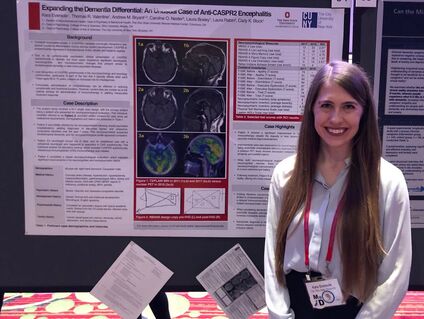
Kara has presented research at numerous regional, national, and international conferences and participates in several multi-site research efforts. She believes in the importance of being a producer as well as a consumer of research, and is eager to continue contributing to the field of neuropsychology.
She recently defended her master's thesis, which examined performance patterns in different subtypes of mild cognitive impairment on a working memory task, and centered on the Fuster's theory of executive attention.
While Kara's interests are still broad and she is eager to expand her knowledge, she is particularly interested in detecting abnormal cognitive decline in older adults. More specifically, she is interested in examining mild cognitive impairment through a process approach lens. She aspires to strengthen clinical tools and assessments to better serve patients and guide clinicians in treatment, recommendations, and differential diagnosis, particularly in historically underserved populations.
She recently defended her master's thesis, which examined performance patterns in different subtypes of mild cognitive impairment on a working memory task, and centered on the Fuster's theory of executive attention.
While Kara's interests are still broad and she is eager to expand her knowledge, she is particularly interested in detecting abnormal cognitive decline in older adults. More specifically, she is interested in examining mild cognitive impairment through a process approach lens. She aspires to strengthen clinical tools and assessments to better serve patients and guide clinicians in treatment, recommendations, and differential diagnosis, particularly in historically underserved populations.
